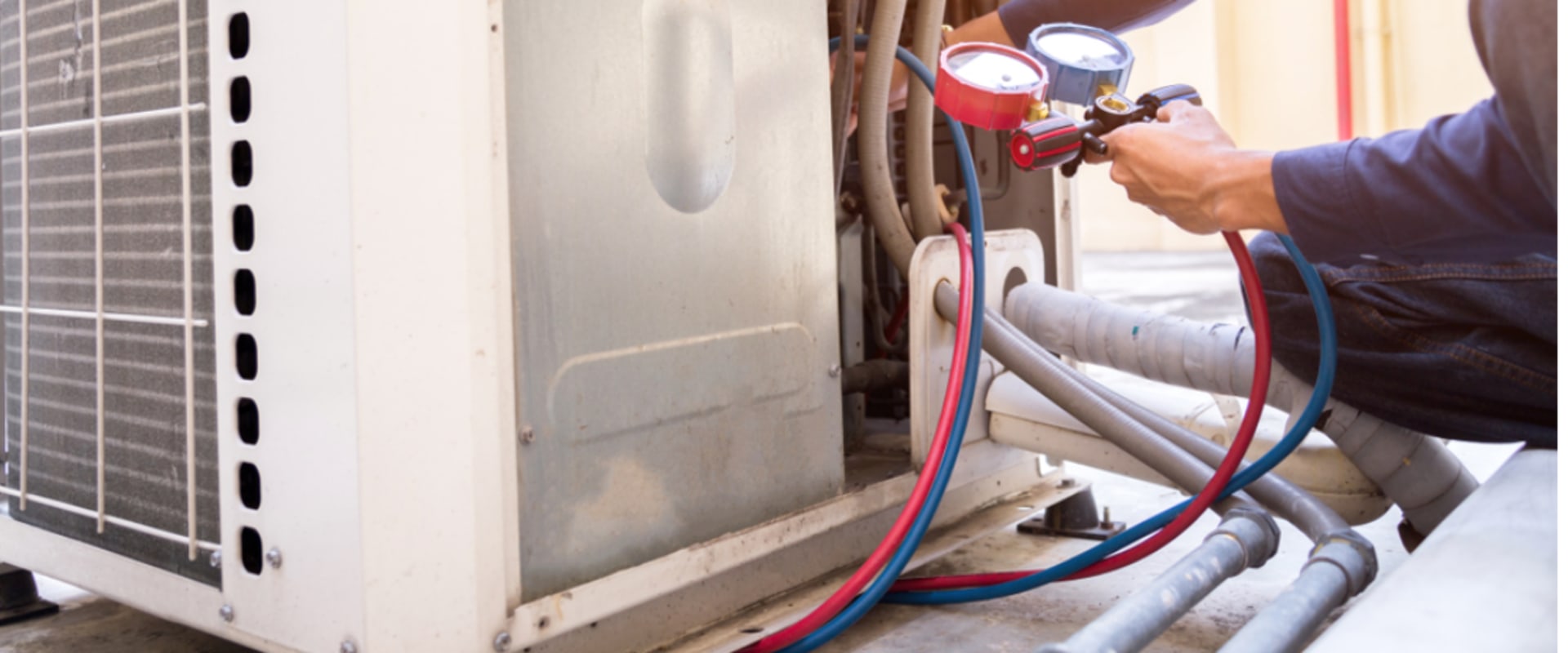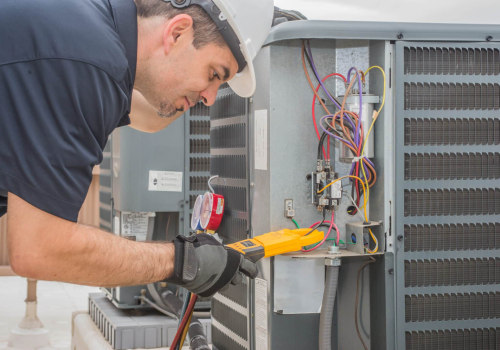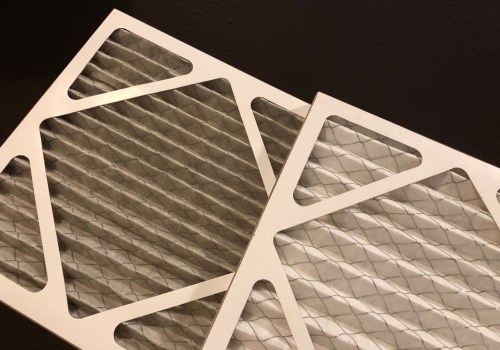HVAC UV Light Installation Services In Weston FL
Air quality is a crucial factor that affects the comfort and well-being of individuals in their homes. With the increasing awareness of the harmful effects of indoor pollutants, homeowners are seeking effective solutions to improve air quality.
One such solution is the installation of HVAC UV lights. In Weston FL, professional services are available to install these lights, which have been proven to combat mold and bacteria effectively.
The benefits of HVAC UV lights go beyond just improving air quality; they also play a vital role in preventing the growth and spread of harmful pathogens. The science behind UV radiation and pathogen destruction is well-established, making these lights an effective tool for eliminating microorganisms from the air.
Additionally, with long-term use, HVAC UV light installation can provide lasting benefits by reducing instances of respiratory illnesses and allergies caused by poor air quality.
Therefore, it is essential for homeowners in Weston FL to consider investing in professional HVAC UV light installation services to ensure a healthier living environment for themselves and their families.
The Importance of Air Quality in Your Home
What is the significance of air quality in residential environments and how does it impact the overall well-being of individuals?
The link between air quality and respiratory health has been extensively studied, and it is now widely recognized that poor indoor air quality can have detrimental effects on human health. Indoor air pollution can be caused by various factors such as inadequate ventilation, chemical pollutants from household products, and biological contaminants like mold or dust mites. Breathing in polluted indoor air can lead to a range of respiratory problems including allergies, asthma exacerbations, and other lung diseases.
One crucial factor in maintaining good indoor air quality is the role of HVAC systems. HVAC stands for heating, ventilation, and air conditioning, which are vital components of residential environments. These systems play a critical role in regulating temperature, and humidity levels, and ensuring adequate airflow throughout homes. Properly functioning HVAC systems help remove airborne pollutants such as dust particles, pet dander, and volatile organic compounds (VOCs) from the indoor environment.
In addition to filtration systems that capture particulate matter effectively, some HVAC systems also incorporate UV light technology to improve air quality further. Ultraviolet (UV) light has antimicrobial properties that can neutralize bacteria, viruses, mold spores, and other pathogens present in the air or on surfaces within HVAC units. By installing UV lights within these systems specifically designed for this purpose, homeowners can significantly reduce the presence of harmful microorganisms in their indoor spaces.
Overall, understanding the importance of maintaining good indoor air quality is essential for promoting optimal health and well-being. Recognizing the link between respiratory health and air quality helps emphasize the need for clean indoor environments free from harmful pollutants. Moreover, acknowledging the role of HVAC systems in maintaining proper airflow and incorporating technologies like UV lights enhances their effectiveness in improving overall air quality standards within residential settings.
Understanding the Benefits of HVAC UV Lights
A deeper understanding of the advantages associated with incorporating UV lights into indoor air systems can be obtained.
HVAC UV lights are a popular choice for homeowners looking to improve the air quality in their homes.
One of the main benefits of using UV lights is their effectiveness in killing harmful bacteria and viruses that may be present in the air.
These lights emit ultraviolet radiation, which damages the DNA and RNA of microorganisms, preventing them from reproducing and rendering them harmless.
Another benefit of HVAC UV lights is their ability to eliminate mold and mildew growth inside the system.
Mold spores are not only unsightly but can also cause health issues such as allergies and respiratory problems.
By installing UV lights in the HVAC system, these spores can be effectively eliminated before they have a chance to spread throughout the home.
This helps maintain a cleaner and healthier environment for residents.
In addition to killing microorganisms and preventing mold growth, HVAC UV lights also help improve energy efficiency.
When coils inside an air conditioning unit become contaminated with bacteria or mold, they become less efficient at transferring heat.
This puts more strain on the system, leading to increased energy consumption and higher utility bills.
By using UV lights to keep these coils clean, homeowners can ensure that their HVAC systems operate at optimal efficiency, saving both energy and money in the long run.
Overall, incorporating HVAC UV lights into indoor air systems offers numerous benefits including increased effectiveness in killing harmful microorganisms, prevention of mold growth, and improved energy efficiency.
These advantages contribute towards maintaining a cleaner, healthier home environment while reducing utility costs.
With growing concerns about indoor air quality, it is evident that utilizing this technology can greatly enhance overall comfort and well-being within residential spaces.
How UV Lights Combat Mold and Bacteria
One interesting statistic reveals that the presence of HVAC UV lights can reduce mold and bacteria growth by up to 99.9% in indoor air systems.
UV lights are highly effective in combatting these microorganisms due to their ability to disrupt their DNA structure, preventing them from reproducing and spreading further. The ultraviolet radiation emitted by these lights damages the genetic material of mold spores and bacteria, rendering them inactive and unable to cause harm.
UV light effectiveness is directly related to the dosage of radiation received by the microorganisms. Sufficient exposure time is necessary for the UV light to effectively destroy mold and bacteria, ensuring the indoor air remains clean and healthy.
It is important to note that proper installation and maintenance of HVAC UV lights are essential for optimal performance. These lights should be strategically placed within the system where they have direct contact with circulating air, eliminating any potential areas for mold or bacteria growth.
While HVAC UV lights are highly effective in combating mold and bacteria, certain safety precautions should be followed during installation and operation. Direct exposure to UV radiation can be harmful to human health, causing skin burns or eye damage. Therefore, it is crucial to ensure that all electrical connections are secure, preventing accidental contact with live wires. Additionally, appropriate shielding should be installed around the UV light sources within the HVAC system to minimize any potential risk of exposure.
HVAC UV lights play a significant role in reducing mold and bacteria growth in indoor air systems. Their effectiveness stems from their ability to disrupt the DNA structures of these microorganisms through ultraviolet radiation. Proper installation and maintenance are vital for optimal performance while adhering to safety precautions ensures a safe environment for individuals using spaces equipped with HVAC UV lights.
The Science Behind UV Radiation and Pathogen Destruction
UV radiation is a powerful tool that effectively destroys pathogens by disrupting their DNA structures, rendering them inactive and unable to cause harm.
When UV radiation comes into contact with the genetic material of microorganisms such as bacteria, viruses, and mold spores, it causes damage to their DNA. This damage prevents the microorganisms from replicating and carrying out essential functions for survival. As a result, they become unable to infect humans or multiply in indoor environments.
The effects of UV radiation on pathogens are primarily due to its ability to disrupt the molecular bonds within the DNA molecules of these organisms. UV rays have a specific wavelength range known as UVC (ultraviolet C) that is most effective at damaging genetic material.
When UVC light is emitted from UV lamps installed in HVAC systems, it penetrates the cell walls of microorganisms and directly interacts with their DNA.
As a consequence of this interaction, the structure of the DNA becomes compromised. Specifically, UV radiation damages the nucleotide bases present in DNA strands, leading to mutations or breaks in the genetic code. These alterations prevent proper replication and transcription processes necessary for pathogen survival and reproduction.
Consequently, microorganisms are rendered inactive and unable to cause infections or spread diseases within indoor spaces. The use of HVAC UV light installation services harnesses this scientific understanding by employing UVC rays to effectively combat pathogens in residential or commercial settings, contributing to improved air quality and reduced health risks for occupants.
The Long-Term Effects of HVAC UV Light Installation
The implementation of HVAC UV light technology has been found to have profound and lasting effects on the overall air quality and health conditions within indoor environments. One of the significant long-term benefits is improved long-term health. By installing UV lights in HVAC systems, harmful pathogens such as bacteria, viruses, and mold spores can be effectively neutralized. This leads to a reduction in the risk of respiratory infections and allergic reactions caused by these microorganisms circulating in the air. Studies have shown that UV radiation can destroy up to 99% of airborne pathogens, creating a healthier environment for occupants.
Another advantage of HVAC UV light installation is increased energy efficiency. When air conditioning units become contaminated with organic growth or dirt buildup, their efficiency decreases, resulting in higher energy consumption. However, with the use of UV lights, these issues can be mitigated. The ultraviolet rays emitted by the lights kill or inhibit microbial growth on cooling coils and other components of the HVAC system. By keeping these surfaces clean and free from contamination, the system operates more efficiently, reducing energy usage and potentially lowering utility bills.
Furthermore, HVAC UV light installation provides long-term maintenance benefits. Since microbial growth is prevented or minimized by the continuous operation of UV lights within the system, there is less need for manual cleaning or costly coil replacements due to mold or bacterial infestations over time. Regular maintenance procedures are simplified when combined with UV technology since it help maintain cleaner equipment surfaces throughout their lifespan.
Implementing HVAC UV light technology has numerous long-term benefits for indoor environments. It effectively improves long-term health conditions by eliminating harmful pathogens from circulating in the air, reducing respiratory infections and allergies among occupants.
Additionally, it enhances energy efficiency by inhibiting microbial growth on cooling coils and other components which results in lower energy consumption and reduced utility costs over time.
Lastly, it provides maintenance advantages by keeping equipment cleaner for longer periods without requiring extensive manual cleaning or expensive part replacements due to microbial infestations.
Choosing the Right HVAC UV Light Installation Service
When considering the implementation of HVAC UV light technology, it is essential to select a reputable and experienced provider that can ensure seamless integration into your existing system while maximizing its efficiency and effectiveness.
The maintenance of HVAC UV light systems is crucial for their long-term functionality. Regular inspections and cleanings are necessary to keep the system running smoothly and effectively. A reliable HVAC UV light installation service will offer routine maintenance services to ensure that the UV lights are working optimally.
Furthermore, it is important to consider the cost of UV light installation when choosing a service provider. The cost may vary depending on the size of your HVAC system and the complexity of the installation process. Reputable providers will provide transparent pricing information upfront, allowing you to make an informed decision about whether or not this investment fits within your budget.
In addition to installation costs, ongoing maintenance expenses should also be taken into account. While regular maintenance may incur additional costs, it is essential to ensure that the HVAC UV light system continues functioning efficiently over time. Therefore, selecting an HVAC UV light installation service that offers affordable maintenance plans can help minimize long-term expenses while maximizing the benefits of this technology in terms of air purification and energy efficiency.
Maintaining and Troubleshooting Your HVAC UV Lights
Regular maintenance and troubleshooting are essential for ensuring the long-term functionality and optimal performance of HVAC UV light systems. Proper maintenance of HVAC UV lights involves regular cleaning and inspection to prevent dust buildup or any blockages that can hinder their effectiveness.
It is recommended to clean the UV lamps every three months using a soft cloth and mild detergent, making sure to disconnect the power source before doing so. Additionally, inspecting the condition of the lamps, wiring, and connections is crucial to identify any signs of wear or damage that may require repairs or replacements.
Troubleshooting UV light installations involves identifying and addressing any issues that may arise during operation. One common problem is inadequate airflow around the UV lights, which can affect their ability to sterilize air effectively. To troubleshoot this issue, it is important to check if there are any obstructions such as furniture or curtains blocking the airflow path. Additionally, checking for proper installation of the lights in accordance with manufacturer guidelines can ensure optimal performance.
Another troubleshooting aspect includes monitoring the lifespan of UV lamps. Over time, these lamps lose intensity and become less effective at killing bacteria and molds in HVAC systems. Therefore, it is advisable to replace them after 9-12 months of continuous use or according to manufacturer recommendations. Regularly checking for signs like flickering or weakened output from the lamp can indicate when it needs replacement.
Maintaining HVAC UV lights through regular cleaning and inspection is vital for their long-term functionality. Troubleshooting issues related to inadequate airflow or lamp deterioration ensures optimal performance of these systems in eliminating harmful microorganisms from indoor environments. By following proper maintenance practices and promptly addressing any problems that arise, homeowners can enjoy cleaner and healthier air while maximizing the benefits provided by their HVAC UV light installations.
Frequently Asked Questions
How much does HVAC UV light installation cost in Weston FL?
The cost of HVAC UV light installation in Weston FL varies depending on factors such as the size of the system and the complexity of the installation. It is recommended to consider the benefits and hire professional installers with expertise in this field.
Are HVAC UV lights safe for pets and children?
UV lights used in HVAC systems can be compared to a double-edged sword. While they effectively eliminate harmful pathogens, their exposure may pose risks to pets and children. Precautions such as proper installation and shielding should be taken to ensure safety.
Can HVAC UV lights eliminate odors in the home?
HVAC UV lights have been found effective in killing bacteria and viruses, thus potentially reducing odors in the home. The benefits of using HVAC UV lights include improved indoor air quality and a cleaner living environment.
How often should HVAC UV lights be replaced?
The lifespan of HVAC UV lights varies depending on usage, but they typically need to be replaced every 1-2 years. UV lights in HVAC systems provide benefits such as reducing microbial growth and improving indoor air quality.
Do HVAC UV lights require any additional maintenance or cleaning?
HVAC UV lights do require regular maintenance and cleaning. It is recommended to clean the bulbs and the surrounding area of any dust or debris every 6-12 months to ensure optimal performance.




